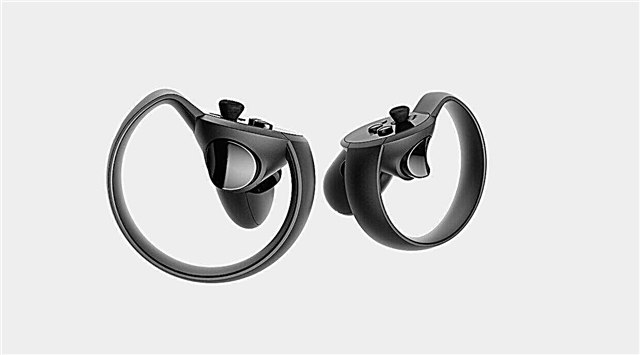Coffee is one of the most popular drinks in the world, along with beer and water. Nowadays, there is a wide variety of flavors and methods of preparing coffee, such as brewed coffee, frappuccino, or decaffeinated coffee.
Drinking coffee is one of 10 examples of how people ruin their stomach. Coffee is present in workplaces, at home, during vacations and holidays. Check out the 10 most popular coffee retailers in the world. And while many people enjoy coffee, some are aware of the risks and dangers associated with consuming large amounts of caffeine.
Remember that caffeine is not fatal by itself, but it can create risk factors for serious illness. Below are the 10 potential negative effects of excessive coffee consumption.
10. Problems of the cardiovascular system
Consuming caffeine, regardless of the amount, increases your heart rate and raises your blood pressure. In the worst case, it can cause a heart attack. By itself, caffeine does not cause hypertensive attacks, but it can be a factor affecting strokes and spasms of the coronary vessels. People with a family history of heart disease should refrain from drinking coffee, especially after they reach 35 years of age.
9. Stress
Surprisingly, coffee won't help you deal with stress. Check out 10 effective ways to deal with stress. In fact, consumption of caffeine increases the production of a stress hormone called cortisol. When the body produces too much of this hormone, it causes:
- irritability,
- muscle fatigue
- anxiety,
- insomnia
- upset stomach, which, when combined with many other factors, lead to illness.
Typically, people drink coffee to keep their adrenaline at an optimal level, which helps them feel energized. In fact, it affects the body's internal clock, which is unhealthy.
8. Emotional disorders
Contrary to popular belief, coffee does not necessarily increase a person's energy levels. Caffeine is a natural depressant, and while some people may feel refreshed after drinking coffee, the long-term effects of coffee are unsettling. Depression occurs when the effects of caffeine weaken and the body needs to take the next dose in order to feel and function normally. In such cases, coffee addiction sets in.
7. Problems with sugar and insulin levels
People with diabetes and other insulin-related problems usually say that decaf coffee helps maintain balanced blood sugar. This is a case of mental attunement, because in reality, caffeine consumption leads to an overproduction of insulin in a matter of hours.
People with weight problems should refrain from drinking coffee because biological body language stores excess sugar as fat, which causes cravings for carbohydrates and glucose-rich foods.
6. Gastrointestinal problems
Drinking coffee on an empty stomach can indeed be hazardous to health, and it is a scientific fact that is often ignored by many. Consuming caffeine, regardless of the amount, increases the production of hydrochloric acid (HCI). Under normal conditions, the body produces HCI in amounts that are optimal for digestion. When HCI production reaches its limit, there is a shortage to digest large amounts of food.
It causes indigestion, diverticulitis, and in worst cases, colon cancer. Here's the reason why people experience heartburn after drinking coffee... Increased acidity can lead to heartburn and gastroesophageal reflux, also known as acid reflux.
Caffeine doesn't cause ulcers, bacteria do Helicobacter Pyloribut the increased consumption of coffee can contribute to the thinning of the stomach. The same applies to patients with cramps, gastritis, and Crohn's disease. People with a diagnosis of acidity or peptic ulcer disease are advised to avoid caffeine, regardless of the amount consumed.
5. Nutrient deficiency
Consuming not only coffee, but caffeine in general, causes severe nutritional deficiencies leading to osteoporosis. Caffeine slows down the body's absorption of important nutrients responsible for growth, such as calcium, magnesium, potassium, iron, and other minerals.
4. Problems of male reproductive function
Caffeine is a natural diuretic and can cause inflammation of the prostate gland, which often leads to urinary problems. Reduce your caffeine intake if you are having trouble sleeping and getting up several times a night to go to the bathroom.
3. Problems of female reproductive function
Drinking coffee has a profound effect on women. Health conditions such as PMS, osteoporosis, miscarriage, infertility, fibrocystic breast diseases are exacerbated by caffeine intake. A huge problem is the massive loss of magnesium and calcium, which are important elements for lactating and pregnant women.
2. Depletion of the adrenal glands
Usually, people drink a lot of coffee to stay alert and get more tasks done. Ironically, caffeine makes the body weaker and more vulnerable to immune diseases. This includes muscle inflammation and autoimmune diseases where antibodies are not good enough to fight bacteria, colds, flu, and fatigue.
During stressful and physical exertion, the body releases adrenaline and other anti-aging hormones to cope with environmental conditions. But with coffee, caffeine automatically replaces good hormones, like a car running on an empty gas tank. As a result, you are more likely to feel irritable, sleepy, angry, and high blood pressure. You will simply get worse contrary to expectations.
1. Accelerated aging
Have you ever wondered why some people look older than their actual age? If you look closely at their diet, you will notice a common denominator - coffee or other caffeinated foods. Caffeine dehydrates the body. It removes water from the body for skin regeneration and melatonin, which is responsible for a healthy appearance. It depletes cells, especially in the kidneys, making it harder for the body to eliminate toxins.
We recommend watching:
A visual video about the consequences of drinking coffee.



